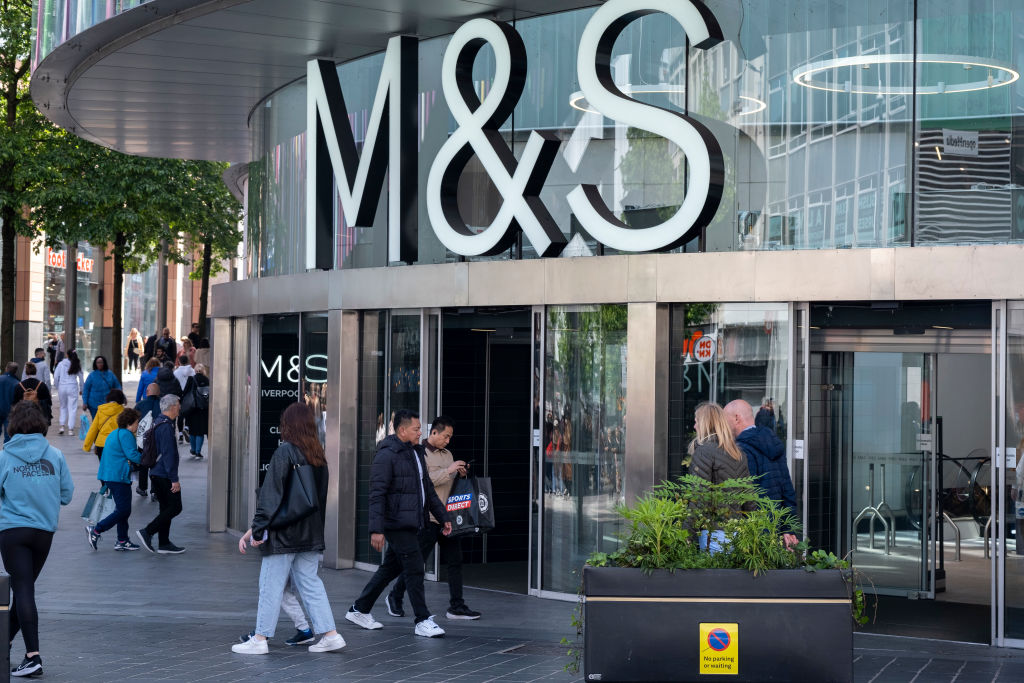M&S, Sainsbury's and JD Sports to be questioned over low pay to shop staff
Pressure group will confront boards at AGMs this week over the hourly rate of lowest-paid workers


Get the latest financial news, insights and expert analysis from our award-winning MoneyWeek team, to help you understand what really matters when it comes to your finances.
You are now subscribed
Your newsletter sign-up was successful
Want to add more newsletters?

Twice daily
MoneyWeek
Get the latest financial news, insights and expert analysis from our award-winning MoneyWeek team, to help you understand what really matters when it comes to your finances.

Four times a week
Look After My Bills
Sign up to our free money-saving newsletter, filled with the latest news and expert advice to help you find the best tips and deals for managing your bills. Start saving today!
Marks & Spencer, JD Sports and Sainsbury's are under pressure to increase the hourly wage of their lowest-paid workers in order to “protect living standards”.
ShareAction, which campaigns for responsible investment, said it plans to attend the annual general meetings (AGMs) of the three major retailers this week to confront and challenge them over low pay.
Tesco, Greggs, Next and B&Q owner Kingfisher were targeted by ShareAction earlier this year.
MoneyWeek
Subscribe to MoneyWeek today and get your first six magazine issues absolutely FREE

Sign up to Money Morning
Don't miss the latest investment and personal finances news, market analysis, plus money-saving tips with our free twice-daily newsletter
Don't miss the latest investment and personal finances news, market analysis, plus money-saving tips with our free twice-daily newsletter
The pressure group wants the retailers to pay their staff the ‘real living wage’ rather than the government’s legal living wage, which is currently £11.44 an hour. The Living Wage Foundation calculates the real living wage to be £12 an hour nationally and £13.15 in London.
Marks & Spencer will face questions at its shareholder meeting on Tuesday about why it has not yet committed to paying its third-party contracted staff, including cleaners and security guards, the real living wage despite making profits of £380 million last year.
‘Inadequate pay a widespread issue’
Dan Howard, head of good work at ShareAction, told the PA news agency: "Inadequate pay is a widespread issue in the retail sector, leaving many workers struggling to make ends meet, and with all sorts of negative knock-on effects on businesses from high turnover rates to low productivity.
"It's in these businesses' interests to pay their staff a real living wage, which allows workers to afford the basic goods and services they need, from housing to food to bills.”
The activists will also challenge the boards of JD Sports and Sainsbury's at their AGMs on Thursday. The protest comes as Simon Roberts, Sainsbury's chief executive, is set to receive almost £5 million in pay this year, more than 200 times the earnings of the average employee at the supermarket chain.
Catherine Howarth, chief executive at ShareAction, says: "The cost-of-living crisis has made it clear that pay inequality and in-work poverty are a blight on our society and urgently need tackling.”
Sainsbury's said it pays colleagues the real living wage nationally and in London, adding that the vast majority of third-party contractors who work in stores, depots, contact centres and store support centres are already paid at or above the wage.
According to results published on Tuesday morning, sales at the supermarket overall were up 3% in the 16 weeks to 22 June, but this was slower than in the previous quarter.
An M&S spokesperson said: "This year we made our biggest ever investment in retail pay - £89 million - to at least £12 per hour, in line with the real living wage, as well as investing in improved maternity and paternity policies."
Get the latest financial news, insights and expert analysis from our award-winning MoneyWeek team, to help you understand what really matters when it comes to your finances.
Chris is a freelance journalist, and was previously an editor and correspondent at the Financial Times as well as the business and money editor at The i Newspaper. He is also the author of the Virgin Money Maker, the personal finance guide published by Virgin Books, and has written for the BBC, The Wall Street Journal, The Independent, South China Morning Post, TimeOut, Barron's and The Guardian. He is a graduate in Economics.
-
 How to navigate the inheritance tax paperwork maze in nine clear steps
How to navigate the inheritance tax paperwork maze in nine clear stepsFamilies who cope best with inheritance tax (IHT) paperwork are those who plan ahead, say experts. We look at all documents you need to gather, regardless of whether you have an IHT bill to pay.
-
 Should you get financial advice when organising care for an elderly relative?
Should you get financial advice when organising care for an elderly relative?A tiny proportion of over 45s get help planning elderly relatives’ care – but is financial advice worth the cost?
